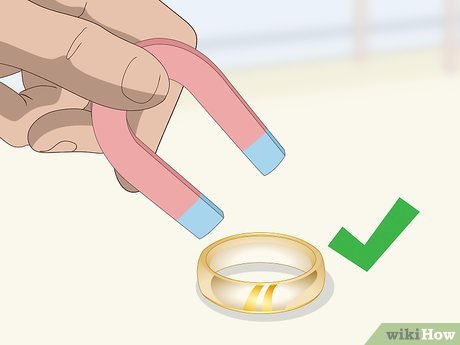How to Test Your Gold at Home with Just Toothpaste
If you've ever wondered whether your gold jewelry is real or not, you don't have to go to a jeweler to find out. With just toothpaste and a few other basic materials found around your home, you can test your gold at home and put any doubts to rest.

Why Testing Your Gold is Important
Testing your gold is important for several reasons. Firstly, it helps you determine the authenticity of your gold. With the rise of counterfeit gold in the market, it is essential to test your gold to ensure that you are not being duped into buying fake gold. Secondly, testing your gold can help you determine its purity. Knowing the purity of your gold can help you determine its value and help you make informed decisions when buying or selling gold.
Moreover, testing your gold can prevent you from making costly mistakes. Some gold items may have a lower karat weight than advertised, and testing can help you uncover such discrepancies. Lastly, testing your gold can give you peace of mind, knowing that you have a genuine and valuable asset.
The Toothpaste Test Method
The Toothpaste Test Method is a simple and easy way to test your gold at home using just toothpaste. This method involves rubbing a small amount of toothpaste onto the gold item and observing any changes in color or texture. If the gold remains the same, it is likely genuine. However, if the gold turns green or black, it may be fake or have a lower purity level. It is important to note that this method is not foolproof and may not be as reliable as other professional testing methods. Additionally, toothpaste with abrasive materials should not be used as it may scratch the gold.


Other Home Testing Methods
While toothpaste can be a quick and easy way to test the authenticity of your gold, there are other home testing methods you can try. One popular method is the magnet test, where you hold a magnet near your gold and observe whether it's magnetic or not. Real gold is not magnetic, so if your gold is attracted to the magnet, it's likely fake.
Another method is the vinegar test, where you place your gold in a bowl of vinegar for a few minutes. If your gold is real, it won't react to the vinegar. However, if it starts to disintegrate or turn green, it's likely fake.
The nitric acid test is also a popular method, but it requires a little more equipment. You'll need nitric acid, a test stone, and a dropper. You'll place a drop of nitric acid on the test stone, then rub your gold against it. If the gold leaves a mark, it's likely real. If it dissolves, it's fake.
Ultimately, it's important to use caution when testing your gold at home. While these methods can be helpful, they're not foolproof and should never replace a professional appraisal. If you're unsure about the authenticity of your gold, it's best to consult with a reputable jeweler or appraiser.
When to Seek Professional Testing Services
While testing your gold at home with toothpaste can be a quick and easy way to determine its authenticity, there may be times when seeking professional testing services is necessary.
For example, if you are dealing with a large amount of gold or need an official certification, it is best to consult with a professional testing service. They have access to specialized equipment and techniques that can provide more accurate results.
Additionally, if you are unsure about the purity of your gold or suspect that it may be a rare or unique piece, it is best to seek professional help. A trained expert can properly evaluate the gold and provide you with a detailed report on its characteristics and value.
Tips for Properly Storing Your Gold
| Tips for Properly Storing Your Gold |
|---|
| 1. Store in a safe or safety deposit box |
| 2. Avoid storing in a location that is prone to humidity or extreme temperatures |
| 3. Keep gold items separate to avoid scratching |
| 4. Consider using anti-tarnish strips or bags |
| 5. Insure your gold to protect against loss or theft |
Gold IRA: Should You Open One To Save For Retirement?

